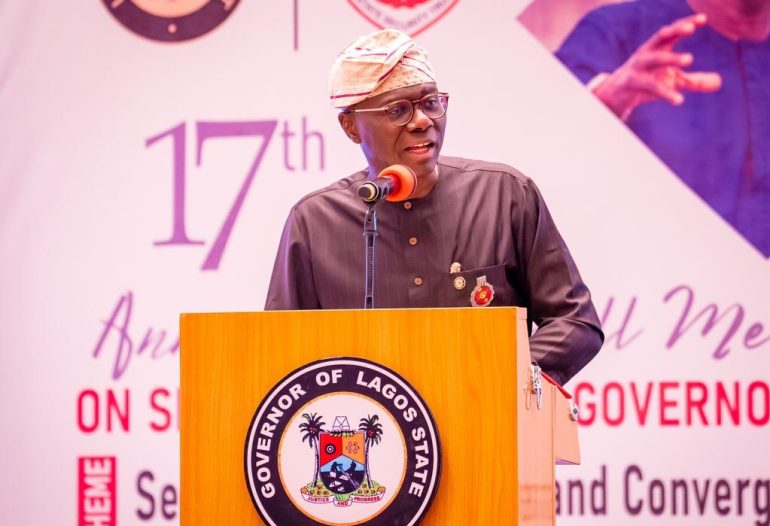The Lagos state government has presented a N2.24 trillion budget for the 2024 fiscal year to the state House of Assembly for deliberation and approval.
Governor Babajide Sanwo-Olu presented the 2024 appropriation bill tagged “Budget of Renewal” to the state’s legislature today.
The Governor said the budget comprises of N1.22 trillion as capital expenditure for the year representing 54.4% of the total budget.
Recurrent expenditure for the state in 2024 stood at N1.02 trillion which includes overhead cost, personnel cost, and recurrent debt service.
According to the Governor, the state’s projected revenue for 2024 stands at N1.847 trillion which includes Internally Generated Revenue (IGR) and allocation from the federal government.
The state is projected to earn around N1.251 trillion from IGR while FAAC allocation should total N596.62 billion in 2024.
According to the Governor during his presentation, 2023 was a challenging year for not just the state but the country in general with record inflation necessitating a cost-of-living crisis.
However, he noted that these challenges create opportunities for Lagos and went further to reel out the achievements of his administration in infrastructure, healthcare, education, transport etc.
The Governor further explained that the 2023 budget of N1.326 trillion has been implemented up to 78% so far with the budget for capital expenditure achieving a performance of 80%.
Gov. Sanwo-Olu further highlighted the state’s collaboration with the federal government in areas of transportation and poverty alleviation to assuage the effects of the fuel subsidy removal on Lagosians.
He said: “We are working closely with the Federal Government to ramp up relief measures to help the people of Lagos State alleviate the pains of the subsidy removal and the impact of high inflation.”
“We are especially concerned about transportation and food costs, and in 2024 we will be keying into the targeted Food Security initiatives of the Federal Government.”
“For transportation, we are fully on board with the Federal Government’s CNG-powered buses initiative, which will deliver sizable numbers of these buses to each State, for public transportation.”
